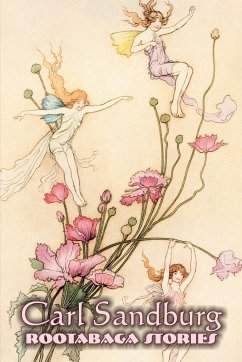Gimme the Ax decided to let his children name themselves. "The first words they speak as soon as they learn to make words shall be their names," he said. "They shall name themselves." When the first boy came to the house of Gimme the Ax, he was named Please Gimme. When the first girl came she was named Ax Me No Questions. And both of the children had the shadows of valleys by night in their eyes and the lights of early morning, when the sun is coming up, on their foreheads. And the hair on top of their heads was a dark wild grass. And they loved to turn the doorknobs, open the doors, and run out to have the wind comb their hair and touch their eyes and put its six soft fingers on their foreheads.
Hinweis: Dieser Artikel kann nur an eine deutsche Lieferadresse ausgeliefert werden.
Hinweis: Dieser Artikel kann nur an eine deutsche Lieferadresse ausgeliefert werden.








